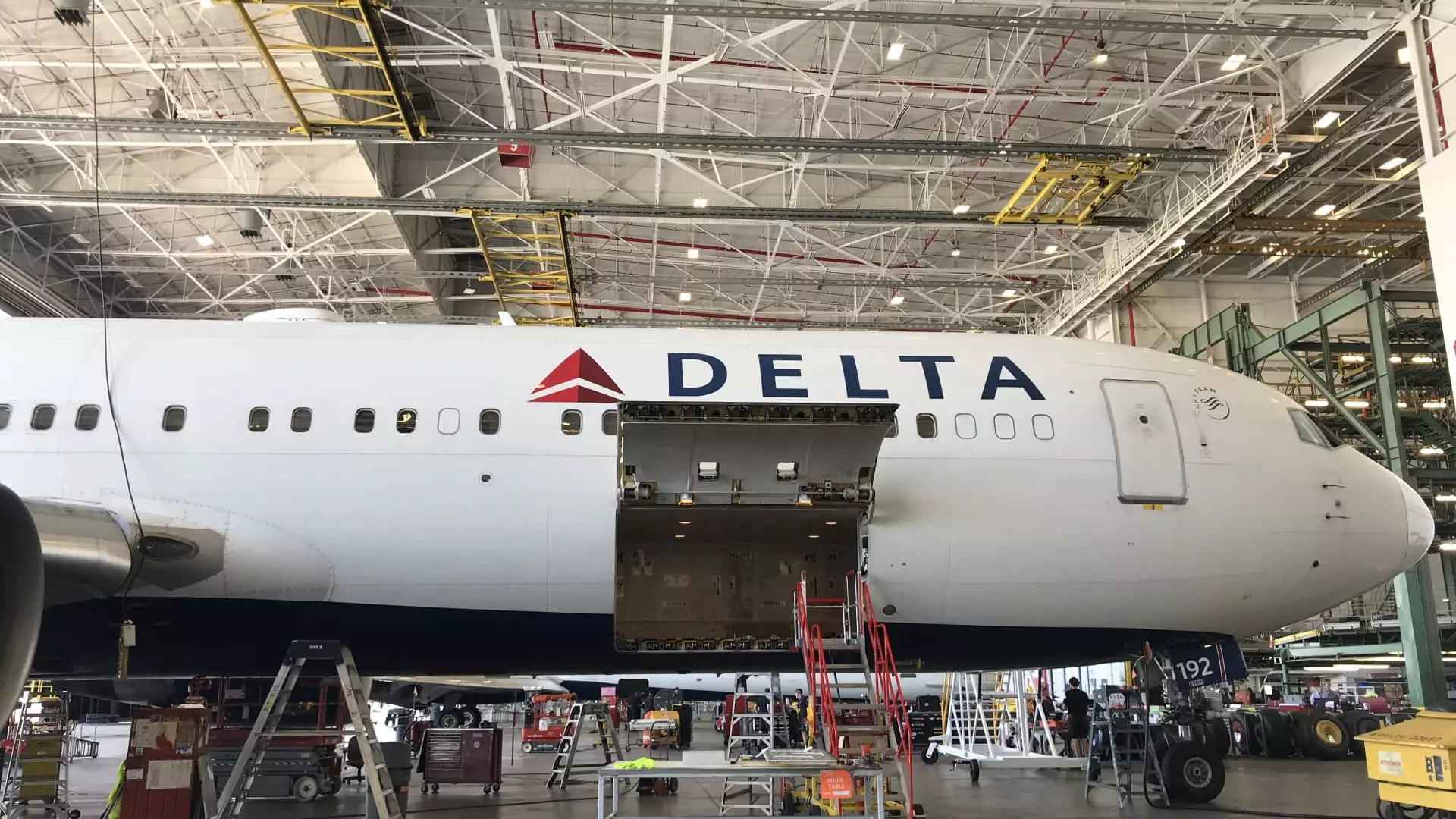Delta Air Lines is poised for a promising fourth quarter in light of resilient travel demand and robust holiday bookings. On a recent Thursday, the Atlanta-based airline shared its outlook, projecting adjusted earnings of $1.60 to $1.85 per share, outperforming Wall Street predictions of $1.71 per share as reported by LSEG. This outlook also reflects a significant increase from last year’s adjusted earnings of $1.28 per share. As international travel continues to rebound post-pandemic, Delta’s projections highlight its ability to capitalize on consumer confidence and vacation-related travel.
Expected revenue growth of 2% to 4% further substantiates Delta’s positive outlook, although this is slightly below analysts’ forecasts of a 4.1% increase. Interestingly, Delta’s leadership cautioned about a potential 1-point revenue decrease linked to decreased demand surrounding the impending U.S. presidential election on November 5. CEO Ed Bastian articulated this concern, suggesting that historical patterns indicate consumer hesitance during elections will likely surface this time as well, affecting discretionary spending. The holiday season, however, remains a focal point, with bookings reportedly stronger than ever.
In its third-quarter performance report, Delta demonstrated resilience despite operational challenges caused by a setback earlier in the year. The reported earnings per share of $1.50, although slightly below the expected $1.52, reflects a commendable achievement given the repercussions of the CrowdStrike outage in July, which materially impacted operations. This incident triggered substantial disruptions, resulting in canceled flights and an estimated $380 million revenue loss. Delta’s commitment to pursuing compensation for these losses from CrowdStrike and Microsoft illustrates its proactive stance towards safeguarding its financial interests.
Despite these setbacks, Delta achieved a 15% year-over-year increase in net income, rising to $1.27 billion in the three months ending September 30, while total revenue reflected a 1% increase, landing at $15.68 billion. The balance between strong passenger revenue and growing demand for premium services like first-class seating signals a shift in consumer preference towards more luxurious travel experiences—a trend that Delta appears keen to exploit.
As the airline industry faces a highly competitive domestic market characterized by an oversupply of offerings, Delta’s strategic adjustments aim to realign their service offerings to stabilize fare prices. Glen Hauenstein, Delta’s president, suggested that the industry is moving towards a more rationalized supply, which should offer more steadiness in pricing as the end of the year approaches and transition into 2025. This evolution in industry dynamics could play to Delta’s advantage as they plan to augment capacity by 3% to 4% in the fourth quarter, aiming to meet anticipated demand while managing operational efficiency.
Throughout the year, Delta’s emphasis on premium services showcases a deliberate focus on capitalizing on high-margin revenue streams, contrasting with traditional economic pressures associated with extensive domestic competition. The growing demand for upgrade options within airplanes signals a consumer market willing to invest in enhanced travel experiences, a trend that could serve as a fundamental pillar in Delta’s broader strategic framework moving forward.
As Delta forecasts full-year adjusted earnings between $6 and $7 per share—excluding the significant CrowdStrike disturbance—the airline remains cautiously optimistic about its trajectory in the upcoming years. Anticipated growth, paired with strategic infrastructure investments and targeted marketing strategies, positions Delta favorably in the evolving travel landscape. As booking patterns shift toward greater volatility around election periods, the adaptive measures Delta is prepared to implement could well insulate them against short-term fluctuations.
While challenges loom, Delta Air Lines demonstrates a capacity for resilience and adaptability. The company’s strategic moves amidst operational hurdles and potential economic turbulence position it not only for a strong finish to 2023 but also for sustainable growth heading into 2025 and beyond. The focus on premium offerings and careful monitoring of market conditions lays a foundation for future success, as Delta seeks to navigate the complexities of a rapidly changing airline industry.


Leave a Reply